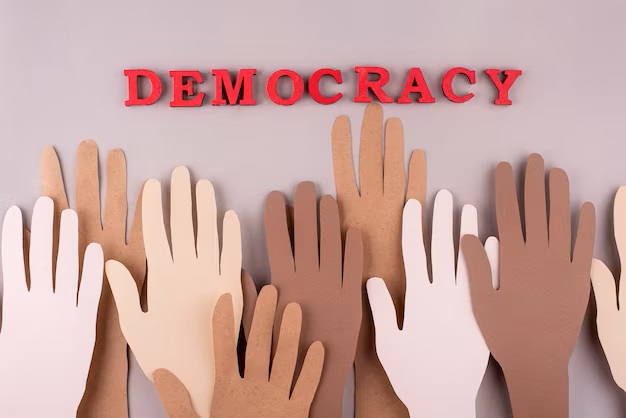The world of professional sports often intertwines with legal frameworks that shape its operations. Among these sports, baseball holds a unique position that distinguishes it from its counterparts in the athletic arena. This distinctive legal standing has profound implications for the way the sport is governed, how teams interact with one another, and the experience of fans and players alike.
At the heart of this discussion is an intriguing historical context that has influenced the development of regulations surrounding the game. The evolution of this framework reflects a blend of tradition and legal precedent, creating a complex tapestry that is both rich and multifaceted. Understanding this background is essential for grasping how the dynamics of the sport function in today’s context.
As we delve deeper, it becomes evident that this legal distinction affects various aspects of the organization, from player contracts to revenue sharing. The ramifications of this situation extend beyond the field, impacting economic conditions, labor relations, and even fan engagement. Thus, exploring the nuances of this unique legal situation opens up a broader conversation about its significance in the realm of professional sports.
Understanding MLB’s Unique Legal Position
The sports industry operates under a framework of laws that affect the economics and governance of teams and organizations. Among these entities, one stands out due to its distinctive legal circumstances. This situation has led to a set of practices that allows for a unique business environment, impacting everything from player contracts to franchise operations.
To comprehend this exceptional standing, it is crucial to explore several key aspects:
- Historical Context: The origins of this legal status date back decades, influenced by earlier court rulings that shaped the landscape of professional sports.
- Judicial Precedents: Important cases have defined the boundaries and implications of this unique position, highlighting the relationship between the sport and legislative measures.
- Economic Impact: This singular status influences financial negotiations, enabling certain practices that might not be permissible in other industries.
- Team Operations: The implications extend to how teams manage their affairs, from local market dynamics to collective agreements.
- Player Relations: This standing also affects interactions with athletes, including draft structures and salary negotiations.
Understanding these components provides insight into why this organization functions differently within the realm of sports, shaping its strategies and long-term vision.
History of the Antitrust Exemption
The unique legal status of professional sports in the United States has been shaped by a combination of historical events and judicial interpretations. This phenomenon has allowed certain sporting organizations to operate under different rules compared to other businesses, resulting in a complex relationship with the law that has evolved over the years.
Early Beginnings
In the early 20th century, professional sports were gaining popularity, but they also faced numerous challenges related to competition and market control. The federal government intervened through various rulings that sought to address monopolistic practices in different industries. However, a notable exception arose for sports, particularly with the establishment of a framework that recognized the distinct nature of these competitions.
Judicial Decisions and Legislative Actions
One significant milestone occurred in 1922, when the U.S. Supreme Court upheld the notion that the business of professional sports did not fall under the Sherman Act, which aimed to curb monopolies and promote fair competition. This ruling set a precedent that granted teams and organizations a level of protection not available to other sectors. Over the decades, various legislative actions and court decisions have reinforced this legal standing, solidifying the perceived need for such an approach in the realm of sports.
As time has passed, the implications of this legal framework continue to evoke debate, raising questions about equity in sports and the potential need for reform to address modern-day challenges.
Impact on Player Contracts and Salaries
The unique protections granted to professional sports organizations greatly shape the dynamics surrounding athlete agreements and compensation packages. These legal advantages create a framework that influences negotiations between players and teams, leading to significant implications for how contracts are structured and what salaries are offered.
One key effect of these protections is the ability of teams to maintain a level of control over player movement, which often limits free agency options. As a result, many athletes may find themselves negotiating under constraints that could affect their earning potential. This environment can lead to disparities in salaries, particularly between established stars and newcomers who may not yet have the leverage to command higher pay.
Furthermore, the lack of competition stemming from these regulatory advantages allows franchises to dictate terms more rigidly. While some players emerge with lucrative deals, others may settle for less favorable conditions, building a complex landscape of agreements across the sport. Overall, the interplay between these legal matters and contract negotiations profoundly affects how athletes are compensated and the financial realities they face throughout their careers.
Comparison with Other Professional Leagues
Analyzing the unique legal circumstances surrounding different sports organizations reveals a varied landscape regarding regulatory frameworks. While some organizations enjoy certain privileges, others operate under different legal standards, impacting their operational and competitive dynamics.
| Sport | Antitrust Protection | Impact on Organizations |
|---|---|---|
| Football | Limited | Subject to federal antitrust laws, affecting franchise location and operations. |
| Basketball | Non-existent | Franchises operate under typical antitrust regulations, promoting competition. |
| Hockey | Moderate | More protections than basketball, but not as extensive as seen in the case of the sport in question. |
| Soccer | Variable | Depending on the country, different regulations may apply, creating a diverse environment. |
Understanding the implications of these varying legal protections is essential for grasping how each organization navigates its relationship with players, franchises, and market competition. The comparative analysis sheds light on the effects these differences have on governance and financial operations within each sport.
Current Legal Challenges and Discussions
The ongoing dialogue surrounding the legal framework governing professional sports continues to evolve, particularly as new cases emerge. Stakeholders are increasingly scrutinizing the practiced exemptions that have long been afforded to certain sports organizations, leading to debates about their relevance in today’s economic landscape.
Several key issues have come to the forefront in recent discussions:
- Recent Litigation: A number of lawsuits have been filed, questioning the validity of longstanding legal privileges granted to sports leagues.
- Player Rights: There is a growing call for increased rights and compensation for players, especially in light of shifting public sentiment.
- Market Competition: Some argue that the existing legal framework stifles competition and innovation, advocating for reforms that would level the playing field.
As these discussions continue, various stakeholders, including fans, players, and legal experts, are weighing in on what reforms may be necessary:
- Policy Changes: Proposals to amend existing policies seek to foster a more equitable environment.
- Legislative Action: Some lawmakers are considering new regulations that could reshape the landscape of professional sports.
- Public Opinion: Changing perspectives among fans and society play a crucial role in driving the conversation forward.
The future of the legal structure surrounding professional sports remains uncertain, with ongoing debates likely to shape its trajectory in the years to come.
Fan Reactions and Industry Perspectives
The landscape of professional softball evokes strong opinions from supporters and industry insiders alike. Enthusiasts often express passion about the structure and governance of the sport, particularly regarding its unique position within the broader realm of American athletics. This section provides a glimpse into the sentiments and viewpoints that shape discussions around these exceptional regulations.
Fan Sentiments
Supporters of the game exhibit a wide array of emotions concerning the governing policies that categorize their beloved sport. Many fans appreciate the traditions and community aspects that these rules maintain, reflecting a deep-rooted loyalty to the teams and the game itself. Conversely, there are critics who argue that certain practices hinder competition and innovation, urging for a reassessment of these historical frameworks.
Industry Insights
Professionals within the sports industry also share distinct views on the regulatory frameworks affecting the game. While some stakeholders advocate for maintaining the status quo as a means to preserve the sport’s integrity, others propose alterations to foster healthy competition and growth. This dialogue reveals a complex interplay between historical legacy and the evolving dynamics of the market.
| Perspective | Viewpoint |
|---|---|
| Fans | Appreciate tradition, but call for reform |
| Industry Insiders | Support status quo for integrity versus calls for innovation |
Future Implications for Baseball Economics
The economic landscape of the sport is poised for significant transformation as various factors continue to evolve. As teams navigate their financial strategies and the landscape of player compensation changes, the effects of existing regulations on competition will likely create new dynamics. Anticipating these shifts is crucial for stakeholders at all levels, from franchise owners to fans, as it will influence revenue sharing, broadcasting rights, and overall profitability.
As the game adapts to societal trends and technological advancements, the economic structure may reflect new priorities. With an increasingly engaged fan base, the potential for enhanced revenue streams from digital platforms is promising. However, challenges related to inequality among franchises could persist if historical practices remain unchallenged.
| Aspect | Current Trends | Future Considerations |
|---|---|---|
| Franchise Revenue | Traditional income from ticket sales and merchandise | Emergence of e-commerce and online streaming revenues |
| Player Salaries | High player wages leading to financial tension | Potential for new salary cap discussions and equitable sharing |
| Fan Engagement | Strong attendance and merchandise sales | Increased focus on digital interactions and community involvement |
Ultimately, the choices made by franchises and regulatory bodies will shape how the economic environment of the sport evolves. Long-term growth hinges on striking a balance between competitiveness and financial sustainability to ensure that the game remains vibrant and appealing to audiences worldwide.
Q&A: Current state major league baseballs antitrust exemption
What is the antitrust exemption for Major League Baseball (MLB), and why does it exist?
The antitrust exemption for MLB stems from a 1922 Supreme Court decision in the case of Federal Baseball Club v. National League. The Court ruled that baseball is not interstate commerce, thus exempting it from antitrust laws that regulate business practices across state lines. This exemption allows MLB to maintain practices such as territorial rights and setting certain prices without the fear of antitrust litigation. Though some argue that this exemption is outdated, supporters believe it helps preserve the unique nature of baseball as a sport rather than just a business.
How does the antitrust exemption impact competition within Major League Baseball?
The antitrust exemption has significant implications for competition within MLB. Since the league can establish and enforce territorial rights, it limits the ability of new franchises to enter markets where existing teams already operate. This can lead to less competition for fan attention and revenue in specific areas. Additionally, the exemption allows MLB to control aspects like team relocation and media rights agreements, which some say stifles innovation and new business models. Critics argue that this reduces overall competitiveness and can lead to inequities between large and small market teams.
Are there any recent legal challenges to MLB’s antitrust exemption?
Yes, there have been recent legal challenges to MLB’s antitrust exemption, particularly focusing on whether it should be maintained in its current form. Various lawsuits have emerged relating to practices such as the joint broadcasting agreements and the minor league system, which some argue create unfair advantages for major teams while restricting opportunities for players in lower leagues. While courts have historically upheld the exemption, the evolving landscape of professional sports and public opinion raises questions about its future viability. Legal experts continue to monitor these developments, indicating potential shifts in how antitrust regulations might apply to baseball.
What are the potential consequences if MLB were to lose its antitrust exemption?
If MLB were to lose its antitrust exemption, the ramifications could be significant. Teams might face increased competition as new franchises could enter previously protected markets, leading to a modified landscape where multiple teams vie for the same fan base and media revenue. The league would also likely have to restructure its business practices, including broadcasting rights and ticket pricing, to comply with antitrust laws. Furthermore, player movement could become less restricted, potentially empowering athletes with more leverage in contracts and negotiations. However, this could also lead to instability in team finances as market competition adjusts.
How does the antitrust exemption for MLB compare to other professional sports leagues in the United States?
MLB’s antitrust exemption is unique compared to other professional sports leagues in the U.S. The National Football League (NFL) and the National Basketball Association (NBA) do not have a similar blanket exemption and operate more under the provisions of antitrust laws. While courts have recognized certain league-wide agreements as permissible to promote competition, both the NFL and NBA have faced legal challenges that could influence their business practices. In contrast, MLB’s established exemption allows for more control over its operations, but it also subjects it to ongoing scrutiny and calls for reform from critics who argue that it is anti-competitive and not reflective of current market realities.
What implications does the Curt Flood Act have for minor league baseball players in relation to antitrust laws?
The Curt Flood Act, passed in 1998, aimed to provide a framework for professional baseball players regarding their rights and protections under antitrust laws. While Major League Baseball (MLB) has historically maintained an antitrust exemption since the landmark case of Federal Baseball Club of Baltimore v. National League of Professional Baseball Clubs, the Curt Flood Act seeks to clarify that minor league players are not completely exempt from federal antitrust laws. This act allows minor league players to bring antitrust suits regarding employment and payment issues, addressing the longstanding concerns over wage disparities and working conditions faced by minor leaguers. However, the exemption may still shield MLB from certain regulations, complicating the legal landscape for minor league players seeking fair compensation and treatment.
How does the general antitrust exemption impact the business of organized professional major league baseball?
The general antitrust exemption allows Major League Baseball to operate with significant flexibility regarding its business practices, including issues related to team affiliations and player wages. This exemption, upheld by the Sherman Antitrust Act, means that baseball is exempt from federal antitrust laws that typically govern other industries. Consequently, MLB can set rules that affect the employment of major league players and control minor league team operations without the usual scrutiny from antitrust regulators. This has led to ongoing debates about the effects of MLB’s antitrust exemption on the market for minor league players, especially as it relates to the ability of teams to fix minor league wages, often resulting in compensation below the minimum wage. As a result, several opportunities to subject baseball to antitrust regulations remain, particularly concerning athlete payment rules on antitrust grounds, which may be challenged in court by former minor league players.
What is the significance of the Curt Flood Act of 1998 in relation to MLB’s antitrust exemption and the treatment of minor league players?
The Curt Flood Act of 1998 is significant because it aimed to clarify the rights of major league baseball players regarding their protections under antitrust laws. While Major League Baseball (MLB) has long enjoyed an exemption from antitrust, as upheld in cases like Federal Baseball Club of Baltimore v. National League of Professional Baseball Clubs, the Curt Flood Act asserts that this exemption does not extend to minor league players. This distinction allows minor leaguers to challenge issues affecting employment and wages, particularly in light of the business of baseball where MLB teams are often criticized for fixing minor league wages below the minimum. The act also highlights that while major league baseball is exempt from antitrust laws, the application of these laws may still affect the 40 minor league teams and their affiliates. Therefore, passing the Curt Flood Act has opened avenues for minor league players to contest MLB’s exemption, emphasizing the need for fair treatment and compensation in the sport.
What was the impact of the federal league on the legal status of baseball in relation to antitrust laws?
The federal league’s existence brought significant legal scrutiny to the structure of professional baseball, particularly concerning the application of the antitrust laws. The courts held that baseball was engaged in interstate commerce, which meant that it was subject to the antitrust laws. However, the federal courts ultimately determined that the Sherman Act did not apply to major league teams and their minor league affiliates, establishing an exemption from antitrust law for professional baseball. This antitrust exemption was upheld, allowing MLB to fix minor league players’ salaries without fear of legal repercussions, effectively leaving minor league players with limited negotiating power compared to their major league counterparts. This decision created a general exemption from antitrust laws that significantly affects the employment of major league baseball players and the structure of minor league baseball relating to or affecting their ability to play baseball at the major league level.
How does MLB’s antitrust exemption impact the relationship between major and minor league baseball?
MLB’s antitrust exemption may significantly impact the relationship between major and minor league baseball by allowing major league teams to operate without the constraints typically imposed by antitrust laws. Under the Sherman Act, which is a critical component of federal antitrust legislation, certain practices of MLB that would otherwise be considered monopolistic are exempt from scrutiny. This exemption affects the employment of major league players by enabling teams to set player salaries and other conditions without the fear of violating state antitrust laws. Consequently, while major and minor league players are both essential to the structure of professional baseball, the antitrust laws apply differently to each, often leaving minor league players in a more vulnerable position regarding contract negotiations and opportunities to play baseball. As a result, the relationship between major and minor leagues is shaped by the legal framework that allows MLB to maintain significant control over its affiliates, further entrenching its status as a major sport in the United States.
What legal implications arise from the antitrust exemption for professional baseball under the Sherman Act?
The antitrust exemption for professional baseball under 1 of the Sherman Act has significant legal implications, particularly concerning the employment of major league players. This exemption means that the practices of Major League Baseball (MLB) and its teams are not subject to antitrust regulation, allowing them to operate without the constraints typically applied to other professional sports leagues. For instance, the antitrust act did not apply when MLB decided to restrict the movement and contracts of minor league affiliates, which directly affects the employment of major league players. As a result, major league teams can dictate terms that influence how and where league baseball players can play, often limiting opportunities for players in lower leagues. This legal framework has created a unique environment in which professional baseball operates differently from other major sports, ultimately shaping the landscape for baseball players to play baseball at various levels.
How has the legal framework surrounding antitrust laws influenced the opportunities available to league baseball players to play?
The legal framework surrounding antitrust laws has significantly influenced the opportunities available to league baseball players to play by establishing an environment that restricts their ability to negotiate contracts freely. Historically, when minor league affiliates brought an antitrust case against Major League Baseball (MLB), the courts ruled in favor of the league, thus affecting employment of major league players by allowing teams to maintain control over player movement and salaries. This means that while major league players often have more leverage in their contracts, the minor league players are frequently left with limited options and bargaining power. Consequently, the antitrust rulings create a system where league baseball players must navigate a landscape where their opportunities to play are dictated by the policies set forth by major league teams, reinforcing the imbalance in power between different levels of professional baseball.









